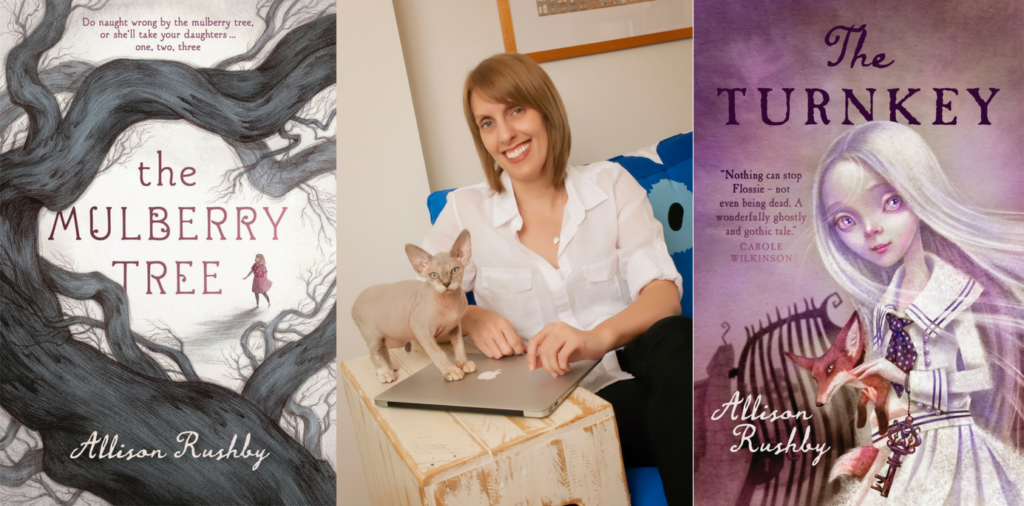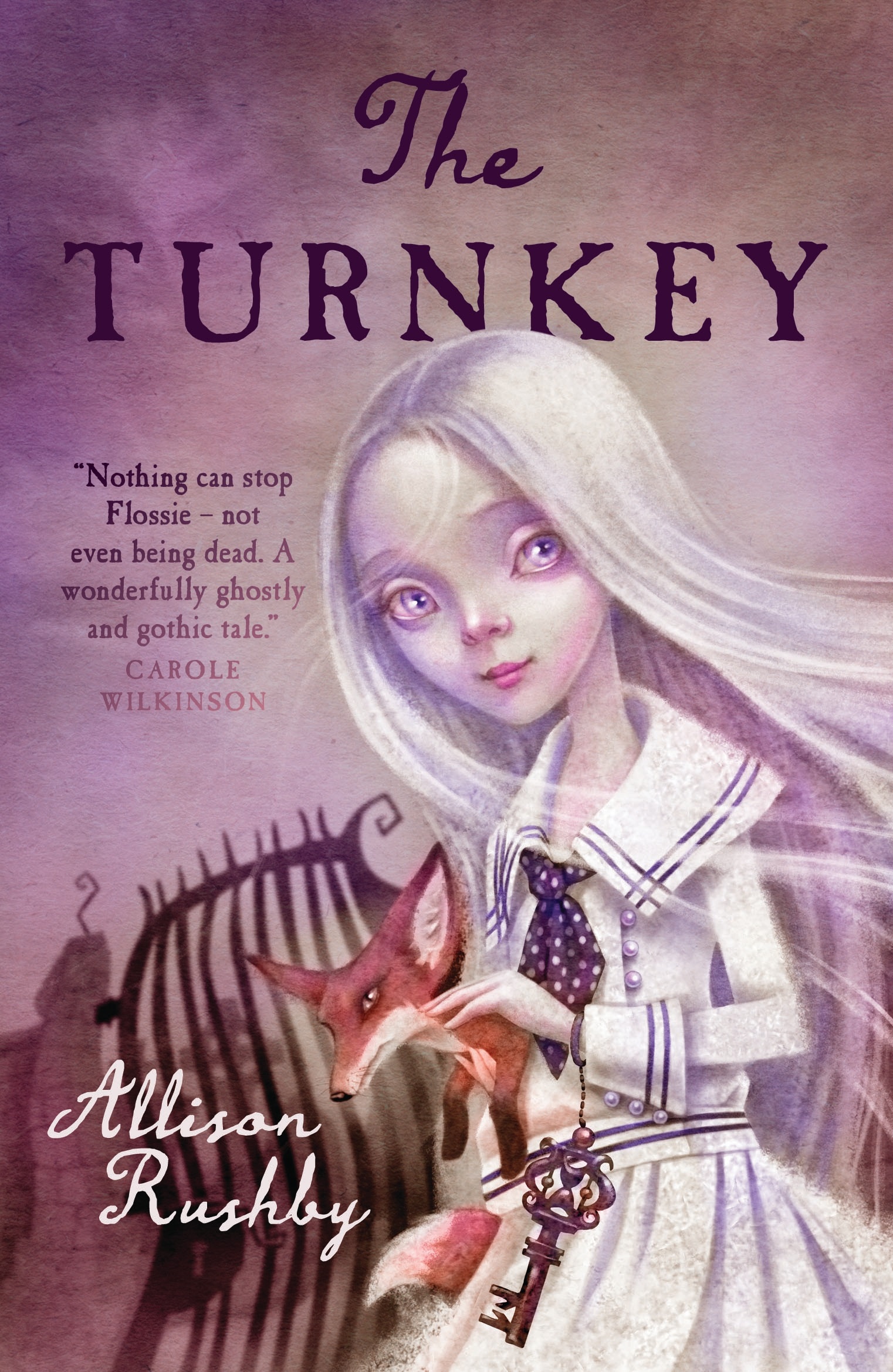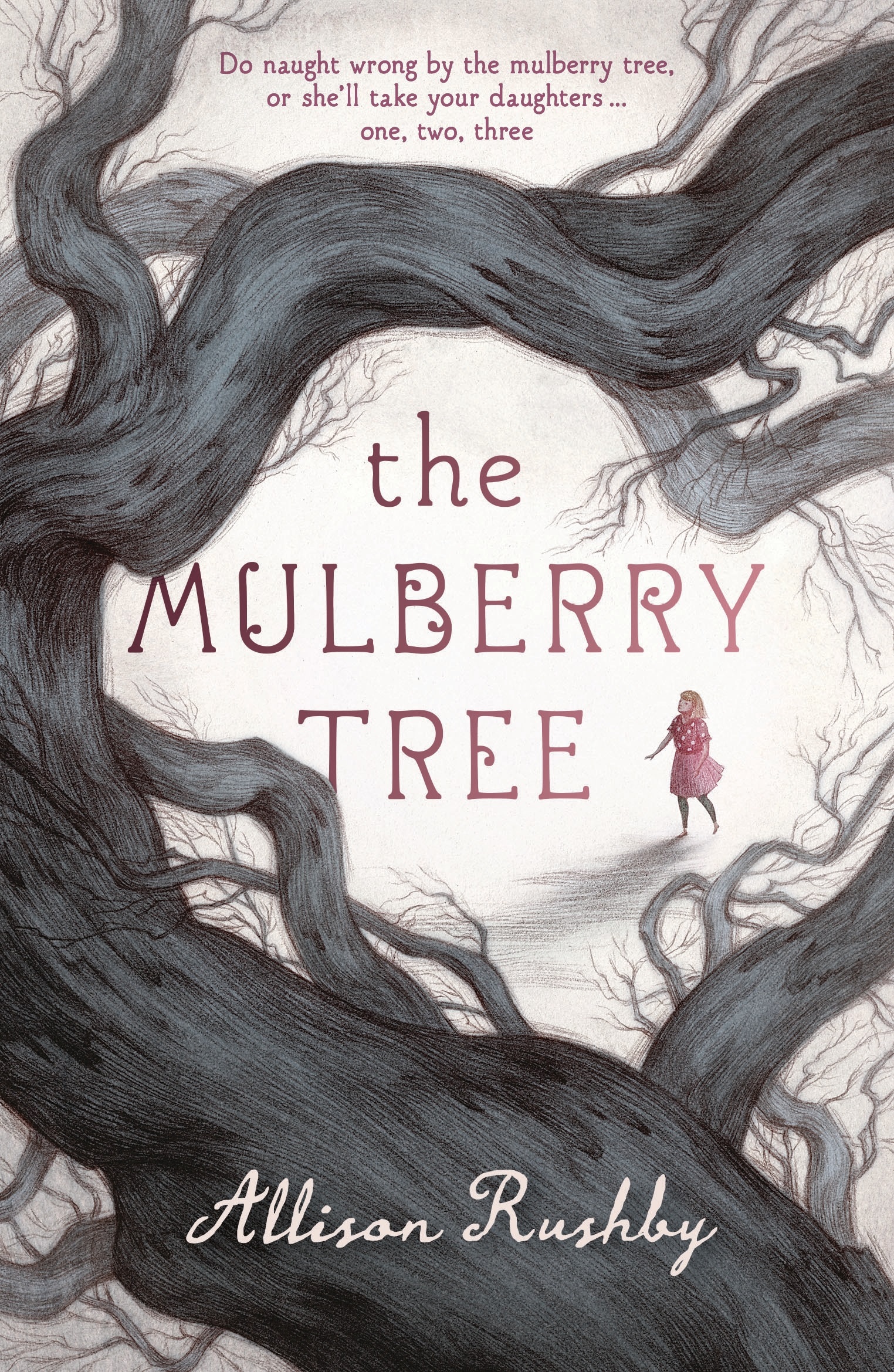Australian author Allison Rushby is a prolific children’s and YA writer with many well-known books to her name, including The Turnkey (2017). Publishing with Walker Books, Rushby’s The Mulberry Tree (July 2018) is a spooky tale aimed at intermediate readers.
Drawing inspiration from her year spent in the tiny mystical village of Buckden in Cambridgeshire, The Mulberry Tree tells the tale of a haunted mulberry tree which is said to steal girls on the eve of their eleventh birthdays – and Immy, the brave ten-year-old who is determined to stop it. Influenced by the ‘weighty permanence’ of history, The Mulberry Tree is a multi-layered and emotionally atmospheric story, one which will be sure to hook every young – and young at heart – reader.

Rosalie Elliffe: The Mulberry Tree is set in the tiny English village of Cambridgeshire, where everyone knows everyone and all secrets are shared. It is a beautifully atmospheric setting with a medieval cottage, a sinister tree and plenty of superstitious villagers. What inspired you to set the novel in Cambridgeshire?
Allison Rushby: In 2011-2012, I was lucky enough to move to the village of Buckden in Cambridgeshire for a year with my family. We lived in a lovely apartment in a converted flour mill that had a gorgeous private flower meadow. It was situated on the Great River Ouse and was next to a lock, so we could watch the canal boats going up and down. We even had a swan and visiting cygnets! It was absolutely idyllic and I knew as soon as I got there that I would set at least one book there. However, it takes time to let a plot simmer and your characters develop, so it isn’t until now, in 2018, that I’m seeing this setting come to life for my readers.
R: The mulberry tree is a creepy tree with a lifelike persona, but what truly makes it spooky is the fact that the entire village actively go out of their way to avoid it. What sort of research did you undertake when writing The Mulberry Tree? Have you always been a fan of folk legends.
A: When I was living in Cambridgeshire, I visited many of the tiny villages in the local area. After visiting quite a few, I found I began to notice something – namely that each of the villages had such a feel of weighty permanence to it. Many of them had been recorded in the Domesday Book, so you knew they had been there as long ago as 1086. Everywhere you looked, there was a church from the 13th century, or a house that had been built in the 1700s.
Amongst all this solid stone and history, I often began to feel that I was a very impermanent little being and that the village was almost telling me off in a way – reminding me that it was stronger and more important and would be here long after I was gone. It was very humbling! I think it was from this feeling that the mulberry tree was born and the folk legend around it came to life.
R: Immy is a strong, courageous ten-year-old, and I’m certain readers will quickly fall in love with her feisty but empathetic nature (especially her love and care of hedgehogs!). What sort of process did you go through when creating Immy?
A: Immy came to me slowly – far more slowly than the tree and the village and the villagers did. I knew I wanted her to be Australian and to have the same experience of trying to fit into a small village and small village school as my own children did during our stay.
I also knew her father’s story before hers. When it came to The Mulberry Tree, Immy was the last piece of the puzzle in many ways, which was a little unsettling, as usually it’s the other way around for me and my main character is one of the things I develop first.
I knew I wanted her to be Australian and to have the same experience of trying to fit into a small village and small village school as my own children did during our stay.
R: The Mulberry Tree is fast-paced and compelling, so much so that it is very difficult to put down. Did you plan your plot in detail, or did you create Immy first and trust in her lead?
A: As I mentioned, Immy came quite late in the piece. It was definitely the mulberry tree and its story that came first, as the tree’s tale was integral to the book working overall. The legend of the tree stealing away girls on the eve of their eleventh birthday took a little bit of time to work up, as I knew it had to be woven very carefully into the fabric of everyday village life. Thus, the villagers are quite superstitious where the tree is concerned and will do things like cross over to walk on the opposite side of the street from Lavender Cottage, or families with female children will move away from the village, leaving Immy’s school full of male students.
The tree’s roots needed to be tangled throughout the whole book, so it was the tree that needed to be planned out first.
R: The dialogue between characters is particularly captivating – especially that between Immy and her elderly neighbour Jean – and I was impressed by your capturing of the authentic pre-teen voice. When writing a contemporary novel such as The Mulberry Tree, how do you keep up-to-date with current trends in teen language?
A: I’m lucky enough to be able to eavesdrop! I have two kids (14 and 11), so have a lot of pre-teens and teens around me all the time. I learn a lot by listening in as I drive them and their friends everywhere!
That said, I’ve never tried to pepper my books with a lot of teen speak as it dates so quickly and often feels awkward when it’s written by an adult anyway. I’m currently hearing a lot of “lit”, “triggered”, “savage” and “extra” in the backseat of my car, but if I used those words in the novel I’m currently working on, it could easily be two to three years before that novel was published, so it’s best to steer clear!
I’ve never tried to pepper my books with a lot of teen speak as it dates so quickly and often feels awkward when it’s written by an adult anyway.
R: I am sure there are many people who can sympathise with Immy’s difficulties when starting a new school, particularly when it is in a different country with strange new customs to adjust to. What sort of research did you do, to inform your awareness of Australia v England for schooling?
A: My kids attended the local village school when we lived in England, so this was very helpful, of course. Considering we were making an “easy” move from Australia to England (in that we spoke the language etc.), we were surprised to find how many differences there were. For example, the English kids couldn’t believe that we don’t have school dinners in Australia and my kids were very wary of partaking for a while!
Going to such a small school was also a change for them. I think their English primary school had only 110 students altogether. While we only stayed for a short time, I can see how it would be difficult to try to fly under the radar when you live in a small village. Everyone knows everyone else’s business all the time! .

R: Immy not only has to contend with starting a new school in a new country, but she is also helping to care for her mentally unwell father. The development of their relationship over the novel is beautiful – and definitely brought tears to my eyes more than once. How did you approach tackling the topic of mental health within The Mulberry Tree?
A: It was definitely difficult and I remember where Immy’s father was concerned, I added and subtracted pieces of dialogue (especially during their arguments) many times. I didn’t want any perfect explanations, or rounded endings on this front because mental illness often doesn’t offer these. Also, I knew that Immy’s father didn’t truly understand what was happening to him – he was hardly going to be able to lay everything out neatly for his daughter.
The fact that both of Immy’s parents were doctors was very important to me as I think mental health and wellbeing for doctors isn’t something that we talk about enough and people don’t realise how difficult it is for health professionals to seek help when they need it.
I think mental health and wellbeing for doctors isn’t something that we talk about enough – people don’t realise how difficult it is for health professionals to seek help when they need it.
R: What was the most fun aspect of writing The Mulberry Tree? Did you have a particular character that you loved to write?
A: I have to admit I loved writing the hedgehogs (just not the bit where the mother hedgehog gets hurt. Sob!). I also really enjoyed the historical research – looking at what it would have been like to attend a VE Day party in a village and what Immy’s cottage might have been like in the late 1700s.
I usually do a lot more historical research for my books (The Turnkey, published last year, was set in 1941 London and the sequel, The Seven Keys, out in 2019, is set in the late 1940s), so it was nice to still have a little historical research to do in The Mulberry Tree.
R: You are a multi-talented author who writes in a variety of genres for children and young adults. Do you have a process of figuring out what to write next, or do you write when inspiration strikes? Are we allowed a hint of what you’re working on next?
A: I don’t have a particular process, but rather leave things to simmer away in the back of my mind until they begin to form into something solid.
At this point, I know for sure that the sequel to The Turnkey, called The Seven Keys will be released in Australia in the first half of 2019, which is very exciting. I have the US and UK releases of The Turnkey (called The Turnkey of Highgate Cemetery) and the US release of The Mulberry Tree coming up over 2018-2020 as well, which will also keep me busy, so I’ll have to make sure I squeeze in some writing time somewhere!
R: What are you reading now? Do you have favourite go-to authors?
A: I’m currently reading Sarah Epstein’s Small Spaces which kept me up late last night! It’s a YA psychological thriller and is definitely keeping me guessing. I’m really not sure which way it’s going to go.
Before that, I read Penni Russon’s The Endsister which was absolutely delicious because she managed to cram so many things I love into the one book – ghosts, London, family life. It was a gorgeous read!


Rosalie Elliffe
Editor, freelance writer and all-round booklover, Rosalie works as an editor at Cognition Education. Having completed the Whitireia Graduate Diploma of Publishing in 2017, she is looking forward to a lifetime spent working with words. A small-town girl at heart, Rosalie is from Oamaru but now lives in Wellington.



